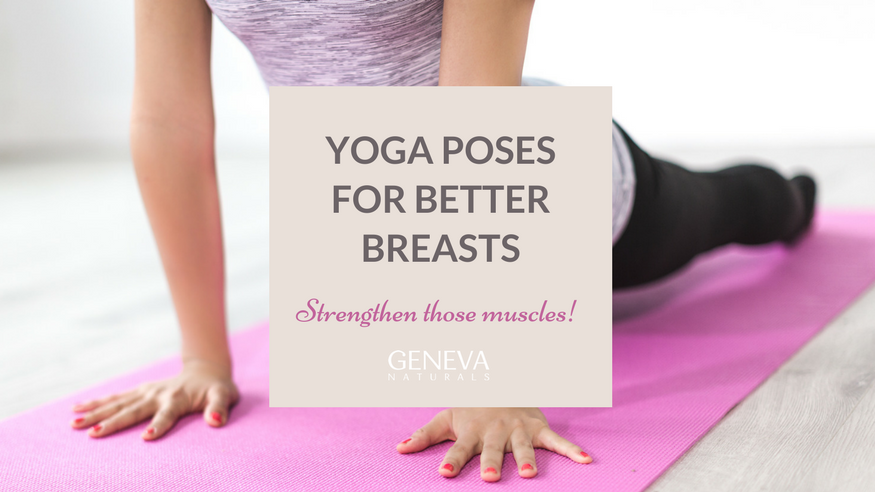Boosting Collagen in Your Face

Have you caught yourself staring in the mirror noticing every fine line or wrinkle that didn’t seem to be there only days before? You and nearly every other adult male and female over the age of 40 starts to notice the signs of aging and asks themselves, “How can I stop this?” Well, can you? You may not be able to stop aging, but there are definitely some things you can do – some more extreme than others – to slow down the signs of it. The difference between someone who shows the signs of aging and someone who doesn’t comes down to one main factor and that is how much collagen they have in their skin. Read on to learn how to boost collagen in your face!
What is collagen and why do I need it?
Unless you want to have skin like an 80 year old at the age of 20, collagen is a very important protein that is found in connective tissues like muscles, bones, fat, blood vessels, ligaments, tendons and digestive system. It makes up 70% of your skin’s overall protein. Elastin is another protein found in the body in places that contract, like our lungs and arteries. Elastin has one distinguishing characteristic – it has the ability to snap back into place and maintain the original shape. These two proteins, collagen and elastin, work as a team. Working together, they give skin its definitive texture and shape making it not only appear more youthful, but stronger as well.

Some people refer to it as skin elasticity, but the reality is that this protein which makes up 30% of the protein in your whole body provides many benefits, specifically to hair, nails and skin. So the difference between someone in their 20s and someone in their 80s is somewhere around 4 times the amount of collagen in their skin.
There are several factors that contribute to the decline in collagen production, so it’s important to be more aware of these things and recognize small changes you can make to reduce them:
- Hormonal changes
- Drugs
- Overwork
- Processed foods
- Radiation
- Too much sun
- Dehydration
- Aging
- Alcohol
- Sugar
- Trauma
- Fluoride water
- Stress
- Poor gut health
- Nutritional deficiencies
- Hydrogenated oils
Boost Your Collagen Naturally
The reality is there are many things that slow down the production of collagen and aging, but only a few things you can do to minimize these signs and keep your skin looking youthful: limit the amount of time in the sun, get more sleep and improve overall nutrition. These aren’t things you can really buy in the store -- they require action! And while many in the beauty industry capitalize on the fact that everyone ages and nearly no one likes it, most of what you see in stores is another way for the skin care companies to profit from our vanity.
Consider these 8 ways to take ownership of your skin’s collagen naturally and BOOST, BOOST, BOOST:
1. Exfoliate
Generally, you are encouraged to exfoliate to help remove dead skin, but it also stimulates collagen production. With a gentle exfoliator, scrub your skin in a circular motion. Be sure to follow up with a moisturizer to prevent dryness.
2. Vitamin C Supplements
Vitamin C helps boost our body’s collagen production. The recommended dose is 500mg a day. You can also ramp up your Vitamin C intake by eating citrus fruits, kiwi, broccoli and spinach.
3. Facial Massage
Schedule an appointment with your favorite esthetician. Facial massage can help boost collagen production. If you prefer to do the massage yourself, choose your favorite moisturizer and gently massage into the skin in circular motions, avoiding the eyes. Check out these Face Massage Tips from Kristen Ma, esthetician and author of "Beauty, Pure and Simple."
4. Wear Sunscreen
This is not the first time you’ve been given this advice and this time, it’s not coming from your mother. Sun rays can be extremely damaging to the cells in our skin which can cause irreversible damage. To reduce sun damage, wear an SPF 20 or higher. Apply the sunscreen at least 30 minutes before going outside. If you’re in the market for a new moisturizer containing SPF, this daily moisturizer is a great option to add to your skin care regimen.
5. Avoid Cigarette Smoke
Not only is smoking bad for our lungs, but it’s also bad for our skin. Inhaling cigarette smoke creates a damaging enzyme referred to as matrix metalloproteinases. These particular enzymes will permanently damage the collagen in our skin – it is irreversible. Find the best course of action for you to quit smoking and avoid being around second hand smoke, as well.
6. Avoid Alcohol
There are studies out there that talk about the benefits of drinking alcohol, but there are certainly negative side effects. Alcohol can dry out our skin causing it to become dehydrated. Too many alcoholic beverages speed up the aging process and interfere with your body’s natural collagen production.
7. Aloe Vera
This can be applied directly to the skin to sooth sunburn or as a mild daily moisturizer. Taken orally, aloe vera can significantly increase hyaluronic acid and collagen development.
8. Eat the Right Foods
What your body really needs to boost collagen are the right foods. Changing the way you eat, introducing some new foods and eliminating some bad ones can greatly improve the collagen in our skin which slows down the signs of aging and allows our healthy, glowing skin to be what we see in the mirror. Here are some foods that increase collagen:

Soymilk and cheese contain genistein. Genistein is what gives soy products their collagen production qualities. It also helps to block enzymes that are known to break down the skin and speed up the process of aging. Soy products are a great substitute for meat products if you’re a vegetarian, but also a great compliment to improving the overall youthfulness of our skin.
Red fruits and vegetables
The presence of lycopene in red fruits and vegetables act as an antioxidant, which increase the production of collagen. Beets, tomatoes, red peppers – even sweet potatoes and carrots help create and extra UV layer of protection which helps to reduce the signs of aging.
Prunes
One of the major contributors to skin aging is the abundance of free radicals. They break down the skin tissue making it unhealthy and unable to sustain its collagen production. The antioxidants in prunes help to minimize these free radicals before it can do significant damage. Blueberries are another great source for antioxidants.
Omega Acids
Common in fish like salmon and tuna, omega fatty acids help to create an ideal environment for collagen to develop. Cashews, almonds and pecans are another source that contain omega fatty acids in quantities significant to collagen production.
Beans
2 tablespoons of beans a day provides an effective anti-aging ingredient called hyaluronic acid to boost collagen production for healthier, more youthful looking skin.
Dark green vegetables
 You’ve always been told to eat your vegetables, but now you have another reason: collagen. Dark leafy vegetables like kale, asparagus, collards, spinach and cabbage are packed with lutein, a type of antioxidant which help improve overall skin hydration and elasticity.
You’ve always been told to eat your vegetables, but now you have another reason: collagen. Dark leafy vegetables like kale, asparagus, collards, spinach and cabbage are packed with lutein, a type of antioxidant which help improve overall skin hydration and elasticity.
Chocolate
Did someone say chocolate? That’s right! While the sugary stuff may not be the best when trying to control breakouts, it’s actually dark chocolate that is really good for our skin. Eating dark chocolate increases the flow of blood to the skin and helps our body in its efficiency of collagen production. See? There are definitely justifiable benefits of dark chocolate!
Avocado Oil
There are some amazing benefits to using avocado oil in our daily skin care regimen. One of them is that it helps boost our body’s collagen making. It also helps to reduce the appearance of red spots or age spots. Use it on your face as a moisturizer and start eating more avocados in your diet.
Manuka Honey
Manuka honey has been proven to help renew skin cells. It also helps our bodies to produce stronger, healthier collagen. It can be eaten by the tablespoon as a daily health supplement. It is also commonly used to make face masks - try out this recipe from Holistic Habits!
Turkey
The protein carnosine slows down the process of cross-linking, or fibers growing into the collagen making it inelastic and stiff. Eat turkey two or three times a week to boost carnosine and strengthen collagen.
Flaxseed
The higher the intake of healthy fat omega -3 found in flaxseed, the stronger the fat layer is that protects your skin cells. Plumper skin cells help disguise fine lines and wrinkles.
Rose hips
This oil contains high levels of Vitamin C, not to mention vitamin E, vitamin D, and vitamin B-carotene. This makes rosehip oil a natural plant extract that can help improve your skin's collagen supply.
By introducing some of these foods into your diet or increasing the amount of intake of foods you are already eating, you will be adding the necessary ingredients to strengthen your skin, ramp up collagen production and be on your way towards smooth, fresh, younger looking skin.
Anti-Aging Collagen Methods
If you’re looking to take more significant measures that boast more immediate results, there are some options your favorite aesthetician can tell you about. Here are 5 things you could try:
1. Dermal fillers
Derived from different sources. They are injected in to the skin at various points to fill space that has overtime developed the signs of aging. Dermal fillers are often used on smile lines around your mouth, fine lines and wrinkles on your forehead or near your eyes. These fillers are not permanent, but do have more immediate results once the healing process is complete.
2. Laser stimulation
Series of treatments that remove the outermost layer of the skin. Using light or laser, these treatments improve skins texture, laxity and appearance of wrinkles.
3. Chemical peels
Another way to treat the skin and improve overall clarity and youthfulness. Chemical peels trigger the renewal of healthy, younger looking skin and enhances collagen production.
4. Hormone Replacement Therapy
More common in women after they’ve experienced menopause. Many women are affected by the decrease in estrogen, which has a significant effect on the skin. This treatment has been proven effective, but should be considered carefully. There are also side effects to be discussed with your healthcare professional.
5. Radiofrequency stimulation
Specifically targeted at the dermal layers and protects the stimulation of collagen renewal. Technology has improved over time to optimize benefits without pain. Also known as the non-invasive facelift, it uses heat to plump the skin and initiate the process of collagen development.
DIY Treatments
For those of you looking for a more natural approach, consider these recipes for DIY face mask treatments that can be made using many common kitchen ingredients to improve your skin's collagen production abilities.
Pumpkin-Yogurt Collagen Facial
1 can pumpkin puree
¼ cup plain yogurt
¼ cup honey
¼ cup ground almonds
Olive oil
Mix the ingredients together with a drizzle of olive oil. Apply gently to the skin. Allow mask to remain for 10 minutes then rinse with warm water. Follow up with favorite facial moisturizer.
Leave–On Collagen Treatment
1 cup water
2 tablespoons fresh pineapple juice
1 vitamin C tablet
Gently heat the ingredients in a saucepan on low heat until fully dissolved. Allow to cool completely in refrigerator. Apply to clean skin using a cotton ball. No need to rinse.
Avocado Face Mask
1 ripe avocado
1 carrot, boiled until tender
½ cup heavy cream
3 tablespoons honey
Mash together the avocado and carrot in a small bowl. Slowly stir in the heavy cream and honey. Apply mixture gently to your face and allow to sit for 10-15 minutes. Rinse with warm water.
Collagen–Boosting Exfoliating Mask
1 kiwi, peeled and mashed
3 tablespoons sugar
Combine kiwi and sugar in a small bowl and apply to your face in a circular motion, avoiding the eyes. Rub for 30 seconds, then rinse with warm water. Follow up with your favorite facial moisturizer.
Refreshing Collagen Mask

1 peach, peeled and pureed
3 tablespoons Greek yogurt
Mix puree and yogurt. Spread mixture onto clean skin. Wait approximately 20 minutes before rinsing with warm water. And apply your favorite facial moisturizer to complete the process.
2 Minute Face Lift
1 egg white
2 teaspoons lemon juice
Combine egg white and lemon juice. Run mixture on face avoiding the eyes and leave for 2 minutes. Rinse face with cool water and apply favorite facial moisturizer.
Also in Geneva Naturals

What Is A Retinoid Oil? Retinoid Oil Benefits, Uses, Effects & More

DIY Clay Mask Recipes for Clear Skin



